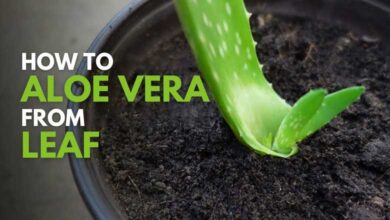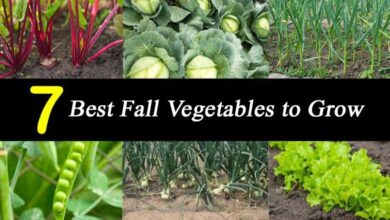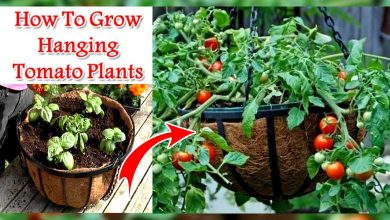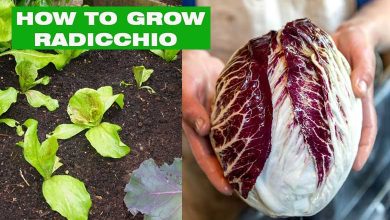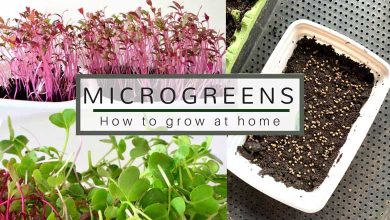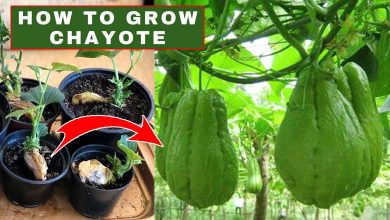How to Grow Hot Peppers, How They Become Hotter
Almost for every gardener, this is a common question that how to grow hot peppers. Again, you have the same variety of your friend or neighbor; yet their peppers seem to be hotter than that of you? How is this possible? Is there any way to make your peppers hotter or what are the ways to grow some hot peppers in your own garden? Don’t worry, relax! We are about to discuss today about how to grow hot peppers and what are the conditions to make your peppers hotter.
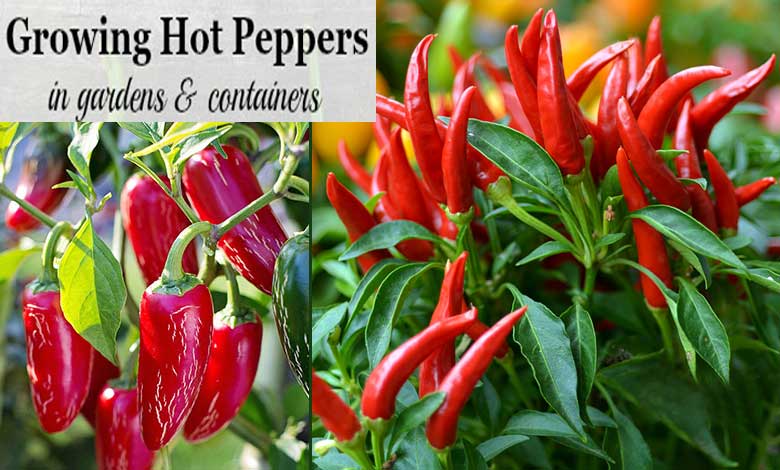
Actually people who love the heat of hot peppers will always be trying to grow some hotter peppers and to do so, they will be looking for some tips or advices form the online. Honestly saying, many of them are worst working and some of them don’t work at all. A few of them can be effective in this regard. But today we are going to provide you some tips and tricks to make your peppers hotter and they really do work. These methods are practical and applied.
How to make your pepper hot
Last year, I faced with some great difficulties to produce hot peppers. The production rate was enough and my pepper was nice to look at. Yet, they were not enough hot in comparison to my friend’s in spite of planting the same kind of peppers. I was anxious as I love the hot flavor and taste. To mean hot pepper, I don’t essentially mean the sexy look of the peppers. Then I go to my friend and discuss the issue and he gives me some practical tips to grow some hotter pepper, which I am about to share with you.

Do you know why peppers taste so hot? It is due to a group of chemical namely capsaicinoids. Among the ingredients of the group, capsaicin is the most important. And this very chemical acts directly on the pain receptors though it does not have its own flavor or odor. The white pith tissue surrounding the seeds is one of the best sources to find capsaicin. In the fleshy part of peppers contains a less amount of capsaicin. And according to common saying, the seeds don’t contain such chemical.
Heat scale of pepper
To measure the hotness of pepper, scientists have developed a scale namely Scoville that ensure the presence of capsaicin in Scoville Heat Units. The measurements are as below:
- Jalapenos: at least 2500 to at best 8000 SHU
- Sweet Peppers: greater than 100 SHU
- Ghost: greater than 1,000,000 SHU
- Spicy Habaneros: at least 100,000 to 580,000 SHU
- Tabasco: at least 30,000 to at best 60,000 SHU
- Carolina Reaper: at least 1.5 million to at best 2 million SHU
- Can you tell the heat of pepper just looking at the fruit?

According to some ancient conception, it is possible to say about the heat of the pepper just looking at the fruit. As per this conception goes, the fruit that grows at downward is milder and sweet pepper. But if the fruit is towards the sun, it must be a hot one. Who knows how true this conception is!
Best ways to grow hot peppers
As I told before, many of the gardener roam from here to there on online in search of some effective tips to grow hot peppers. The tips they find, may sometime be effective, sometime not at all. Many of te tips are as below. Let’s find out the tips and the veracity of them. To have a clear conception regarding how to grow hot peppers, please go through the post top to bottom and you’ll be able to justify the common believes regarding hot peppers.

- Specific location of the plant
- Selecting a hot variety
- Maintaining a low level of nitrogen
- Low level of watering
- Applying some sulfur at the hole while planting
- Ensure homo pollination
- Feeding less
- Allowing them to be aged on vine
- Applying Epsom salt
Let’s check out the veracity of the mentioned tips.
Specific location of the plant
According to a research, the fruit that is picked from the second node is certainly hotter than the other nodes.
Selecting a hot variety
To grow some hotter peppers, you must select a variety that is exactly hot in nature. Of course every different variety has its own hotness, flavor and taste. You can selectin any one of them according to your demand. To find out the hotter variety, you can take help from a trustworthy nursery, an experienced gardener or a reputed online source.
Low level of watering
To make the plants stressed, follow a common tip and that is to ensure low level of watering. According to this tips, water the plants only after the fruit sets. Also you can give a drink of your plants soon after the leaves start to droop.
Also this is noteworthy to mention that water stress will truly come into work in hotter climate like Spain, Thailand and Mexico and the pepper will be hotter. But for cooler area like California, it works opposite and the fruit becomes milder. Consider you growing temperature and climate as well.
But it is obvious that controlled watering will help you to grow hotter pepper on an average; remember, pepper plants are so sensitive to water levels. Too much water can kill them causing waterlogging and extreme poor water level can destroy actual production and plants’ growth. So, I recommend to control watering after you are sure that the flower is pollinated and the fruit is visibly growing. Of course your waiting will be extreme if you wait until the leaves start drooping.
Can maintaining a low level of nitrogen increase hotness?
Is it true that maintaining a low level of nitrogen will help to grow some hotter peppers? What’s the veracity? Does this tips work truly? Too many questions and confusions! Don’t worry as we have science to prove or elaborate.
Habanero is a particular type of pepper and it is grown at different levels of nitrogen. The report says that the fruits show highest level of capsaicin that are grown at the lowest level of nitrogen: at the same time, at high nitrogen level. But, increased nitrogen can help increased amount of flowering and fruiting. What’s the essence of lowing the level of nitrogen when it can do a great favor to your pepper? To ensure both hotness and high yield, ensure a high level of nitrogen.
The tests on Jalapeno shows the same output. I mean, here nitrogen also favor the production and hotness. So, what can we say? Hotness is not increased by fertilizer stress, isn’t it?
Finally, we won’t follow some odd opinion of some website that maintaining a low level of nitrogen can help to grow hotter peppers. Science proves that stressing the plants by maintaining a low level of fertilizer can never be the best way to make the pepper hotter. You can apply some extra to hot your peppers.
Does applying some Sulphur at the hole when planting really work?
According to a common belief, Sulphur can help growing hot pepper. Is it true? Let’s check it out. It is the chemical that adds an acrid flavor. May be for this people think that Sulphur can enhance hotness. But what’s the truth? Can Sulphur really enhance hotness of your pepper? What does science say regarding this?
If we observe the chemical formula of capsaicin, it is C18H27NO3. Can you notice any influence of Sulphur in it? No. so, this is obvious that Sulphur cannot play any significant role to grow some hotter pepper. just think about the issue if you apply some Sulphur in the head of a match, isn’t it too small? It is at the bottom of the hole but as the plants will develop, the roots will deepen and spread approximately 4 feet. How can the match of Sulphur affect the hotness of your pepper?
Remember, every plant needs food and nutrition. Sulphur is one of them that plants need to develop properly. Adding some Sulphur will help the plant to grow better; it can never make the fruit of the plants hotter. So, the idea of applying some Sulphur at the hole when planting is worthless if you do so in order to make the peppers hotter. Only you can do this for the betterment of total development of your plants.
Is ensuring homo pollination essential?
Some believes say that pollination with the cross variety can decrease the level of actual hotness of your peppers. Logic behind this opinion is that growing sweet and hot peppers at the same time will affect the actual output as the pollination of hot peppers with sweet peppers will result into less hot one. What’s the veracity of this opinion? Is it true?
No, the opinion is totally foul and false. I’m not delivering my self-opinion. Consider the facts below:
Peppers are self-pollinating plants. It essentially means that the flower of peppers pollinates itself and hardly it accepts other plant’s pollen to be pollinated. Again, in cause of cross pollination, the fruit must have the qualities of the mother plant. The qualities of the father plant can hardly affect the newly born fruit. Thus, what’s the final outcome? Cross pollination cannot make the hot peppers to be a less one or a less hot pepper to a hotter one.
Will allowing then to be aged on vine make them hotter?
Pepper accumulate extra capsaicin by letting them to be aged. If you leave them longer on the vine, it’ll get hotter. So, waiting for the green Jalapenos to become red will result into much spicier outcome.
This won’t be same for every variety. For example, a test of serrano peppers shows that there is no change of capsaicin level by letting them to yellow or red from green. So, for this variety, waiting to ripen the fruit will be surely a wastage of your valuable time.
Capsaicin continuously increases until 40 days after fruit sets in cayenne peppers. And the level of the chemical start decreasing gradually until 80 days.
Another test of hot peppers from Mexico shows that the level of capsaicin reaches to its peak when they are of 45-55 days. The level starts declining after that.
Finally, we can come to a decision that in order to have some hotter peppers we need to harvest them soon after the fruit stops to grow in its size.
Perhaps you are able to realize what I intend to mean.
Truly adding some Epsom salt helps to make them hotter?
Like other ingredients as we discuss before, can Epsom salt affect hotness? What does science say? Epsom salt is essential to provide magnesium to your plants and thus it accelerates the actual growth. Never it increases hotness of your peppers.
For what peppers get hotter?
So, this is obvious that the hotness of your peppers relay on several conditions including the genetics, location, climate and the stage of maturity. Usually peppers are grown hotter in the warmer areas that that of cooler areas; only because warm nights are likely to be responsible to the intensification of capsaicin within the fruit.

To make your peppers hotter, some tips are for you to follow:
- If the fruit has formed well, water your plants less.
- Apply more fertilizer. It may not affect the hotness of your pepper but can certainly yield you a good harvest.
- Wait for 45-55 days to harvest from the fruit sets. Also you can harvest soon after the fruit stops growing more.
- Do you still feel the necessity of listening to the nonsense and logic less tips from different websites? Perhaps not.
“how to grow hot peppers, how to grow hot peppers from seed, how to grow chili peppers, how to grow hot peppers, how to grow tomatoes, how to grow habanero peppers, how to grow serrano peppers, how to plant hot pepper seeds, how to grow hot peppers indoors, how to grow hot peppers, how to plant hot peppers, how to grow thai chili peppers, how to grow hot jalapenos, growing vegetable all the year, how to grow hot chillies, how to grow chili peppers indoors, how to grow hot peppers, how to grow hot peppers in a pot, how to grow chillies, how to grow chilli plants faster, pot planting ideas uk, how to plant chilli seeds, how to grow chilli plant, how to plant chili, how to grow hot peppers, how to plant chili seeds, how to grow papaya tree, how to grow chillies at home“

